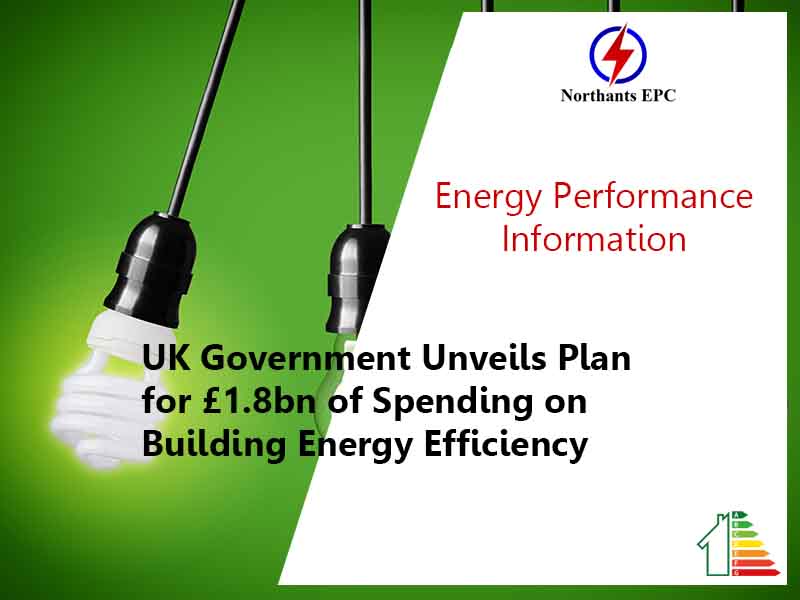UK Government Unveils Plan for £1.8bn of Spending on Building Energy Efficiency
Introduction
In a significant move to tackle climate change and reduce energy consumption, the UK Government has unveiled a groundbreaking plan to invest £1.8 billion in improving the energy efficiency of over 115,000 homes and public sector buildings. The scheme, which includes the Home Upgrade Grant (HUG) for privately owned properties and the Social Housing Decarbonisation Fund for social housing providers, aims to make substantial upgrades to buildings, thereby reducing their carbon footprint. Additionally, public sector buildings, including hospitals, schools, universities, museums, and leisure centres, will receive funding through the Public Sector Decarbonisation Scheme. This comprehensive initiative is a critical step towards achieving the country’s net-zero goals and fostering a sustainable future.
Home Upgrade Grant (HUG) and Social Housing Decarbonisation Fund
The UK Government has officially disclosed the detailed allocation plan for the Home Upgrade Grant (HUG) and the Social Housing Decarbonisation Fund. The combined funding of £1.4 billion will be divided, with approximately £630 million dedicated to HUG and £780 million to the Social Housing Decarbonisation Fund. The government has also secured an additional £1.1 billion in match funding from local authorities, social housing providers, and charities, significantly increasing the financial muscle of the initiative.
Starting next month, the allocated funding will be disbursed over a two-year period to facilitate retrofitting projects for homes with an energy performance certificate (EPC) rating of C or below. These projects will include crucial upgrades like double and triple glazing, wall insulation, and loft insulation. The government anticipates that the initiative will benefit around 115,000 homes across England, resulting in substantial reductions in annual energy bills, ranging from £220 to £400 per household.
Energy Security and Net-Zero Secretary, Grant Shapps, emphasised the significance of this investment, stating that it would enable households to save on energy bills while also ensuring they stay warm for longer. The National Energy Action’s chief, Adam Scorer, described the investment as “vital” and “desperately needed,” particularly for low-income households residing in inefficient homes that suffer disproportionately during energy crises.
The EPC C Standard by 2035
With the funding allocated to these schemes, the UK Government aims to accelerate the transition to greener homes and buildings. The ultimate goal is to ensure that all homes meet a minimum EPC rating of C by 2035, as advised by climate experts. Presently, around 46% of the UK’s housing stock meets EPC C or above, marking a significant improvement from just 9% in 2008. Social housing has seen an even more impressive increase, rising by 18% to 66% within the same timeframe. This progress underscores the nation’s commitment to addressing the climate crisis.
Public Sector Decarbonisation Scheme
Alongside the HUG and Social Housing Decarbonisation Fund, the UK Government is allocating £409 million from the Public Sector Decarbonisation Scheme. The funding will be distributed among 114 public sector bodies across England, enabling them to embark on various energy-efficient projects for hospitals, schools, universities, museums, and leisure centres.
The Public Sector Decarbonisation Scheme strives to uphold the government’s pledge to reduce emissions from public sector buildings by 75% by 2037 compared to 2017 levels. The scheme provides public sector bodies with financial support of up to 100% of upfront costs for energy-saving and low-carbon heating projects.
Conclusion
The UK Government’s commitment of £1.8 billion towards building energy efficiency represents a pivotal moment in the nation’s fight against climate change. Through targeted funding and support, the HUG, Social Housing Decarbonisation Fund, and Public Sector Decarbonisation Scheme will spearhead the transformation of buildings across the country. The move not only promises a greener and more sustainable future for generations to come but also helps in alleviating the financial burden on households and public sector institutions. By working together to create energy-efficient environments, the UK is taking crucial steps towards achieving its ambitious net-zero targets and leaving a lasting positive impact on the planet.
